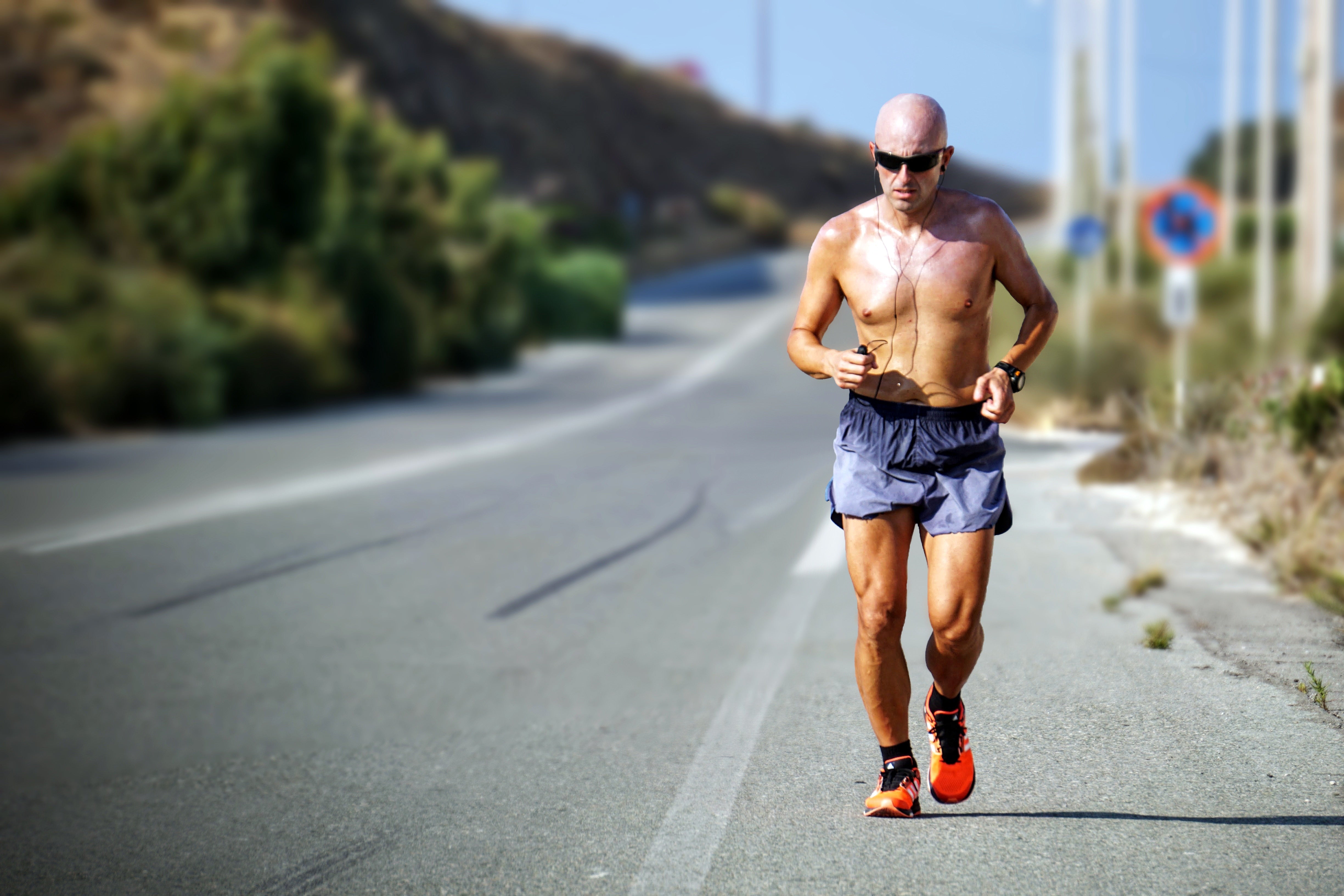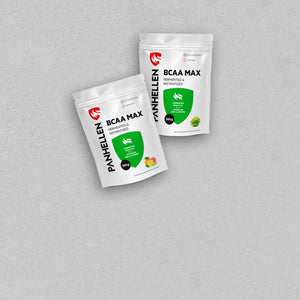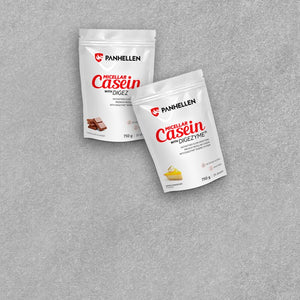THIS CAN BE CAUSED BY RUNNING IN THE SUMMER WITHOUT NOTICE!

A real runner does not look for excuses: he runs in snow, frost, rain and the greatest summer heat. The latter has hidden dangers that you should definitely be aware of; it is worth avoiding, preventing. Running in the summer can trigger processes in the body that are not visible from the outside, but contain serious dangers. If you run in the summer, read this!
THE CIRCULATORY SYSTEM IS IN DANGER
One of the dangers of summer running is dehydration. You often hear about this, but few people know exactly what it means, when it can occur and how it can be professionally avoided. Significant fluid loss has a negative impact on both performance and health. The body reacts to a lack of water by defending itself; the blood distribution is rearranged , the circulation conditions change: the amount of blood decreases; the circulation of the muscles and the skin decreases , which impairs performance and heat release , and puts a strain on the heart, circulatory system and lungs.
SYMPTOMS TO LOOK OUT FOR!
Symptoms of dehydration can be fatigue , headache , flushed skin, dark, strong-smelling urine , and rapid breathing. Unorganized fluid management for an extended period of time can have serious health consequences ! The ability to concentrate deteriorates, muscle work decreases, muscle spasms and hallucinations, possibly fainting may occur.

BETTER TO BE AFRAID THAN TO BE AFRAID
It is better to try to prevent dehydration than to experience the deterioration of performance, the symptoms and to resort to various remedies. Athletes drink fluids before, during and after training or competition lasting more than 50-60 minutes, as water loss can be several liters! But, of course, even in the case of running for a shorter period of time, rehydration is essential in the summer. But it doesn't matter what we drink.
WATER OR NO WATER?
If the running time does not exceed 40-45 minutes, then water can also be suitable for rehydration, but it should be added that water is not ideal in terms of performance enhancement. In the case of longer-term, higher-intensity sports load , this quality is no longer sufficient at all . Because sweat and urine are made up not only of water, but also of various minerals and dissolved substances , so under the heading of fluid replacement, their replacement must also be solved. (Not to mention that, for example, marathon runners, where the strain on the body is even greater, already have to take care of nutrient replacement.) So water alone does not satisfy a runner's hydration (especially in summer).
WHAT SHOULD WE DRINK WHEN RUNNING IN SUMMER?
It depends on the osmotic pressure whether a given liquid replaces or removes water from the blood, thus from the body. They correspond to the pressure of the circulating blood, the so-called isotonic drinks. However, there are also hypotonic and hypertonic fluids.
The absorption of hypotonic drinks (water is also like this) is fast, the body gets water quickly, but it is excreted just as quickly, so it is not the most optimal choice during sports activities in terms of maintaining good performance and increasing performance. The absorption of hypertonic fluids is slow, so it does not suddenly burden the body, but the body first dilutes it with its own fluid, so hypertonic drinks take away water. So it's not ideal for running either. A good choice is an isotonic drink whose composition corresponds to the osmotic concentration of the blood.
The carbohydrate content of an ideal sports drink is 4-8% . However , it doesn't matter what carbohydrates it contains! Simple carbohydrates such as glucose or fructose are far from ideal. Although they provide quick energy, their effect is short-lived and can cause unpleasant side effects. When such carbohydrates are broken down, a large amount of glucose flows into the blood, which triggers the body's insulin response, i.e. prompts the pancreas to release insulin . Insulin is the hormone that transports glucose into the cells. In this way, glucose is removed from the blood, as a result of which the blood sugar level drops rapidly, which has a detrimental effect on running performance. Therefore, athletes should be careful with the intake of simple carbohydrates.

Complex carbohydrates , such as the common maltodextrin (also found in many gels) or dextrose , are a degree better than these. But they are not perfect either, since on the one hand they are absorbed more slowly , and on the other hand they can cause unpleasant side effects such as bloating , which is common in runners.
An ideal choice for carbohydrate intake before running or meanwhile, karbolyn , which is a special "homopolysaccharide" (complex carbohydrate), is absorbed faster than dextrose or maltodextrin carbohydrates and provides long-lasting energy for the body without additional bloating . It is made from starchy ingredients, has a high osmolality and is completely sugar-free . Its uniqueness is that the extremely fast absorption (providing immediate energy) is combined with a long-lasting effect, which is very positive for longer runs. Although karbolyn is not cheap, it would be difficult to find a competitor in terms of its effect.
THE OTHER PROBLEM
Dehydration is only one of the problems, but we cannot ignore the nutrition of the muscles either. A well-known disadvantage of long-distance running is that it "burns" the muscles. It would be ideal to combine the endurance provided by long-distance running with a shapely, muscular body, but for this, the continuous replacement of certain amino acids is essential. Amino acids are the building blocks of muscles, of which the most important in terms of muscle building are branched-chain amino acids (BCAAs) and glutamine.
Also known as the king of amino acids, glutamine is one of the most popular nutritional supplements in almost all sports, including runners. Because during running, the body begins to break down amino acids, i.e. the muscle breakdown process (catabolism) starts. In addition, high-intensity, strenuous training has been proven to weaken the body's resistance. Therefore, the main functions of glutamine supplementation are to increase and maintain muscle , as well as to support the immune system . The pure L-glutamine form is the most common, but complex glutamine preparations containing glutamine peptides in addition to L-glutamine are more advantageous in several ways.
BCAA is another popular supplement among runners, and not only because of its muscle-building and muscle-degrading effects.
MUSCLE AND ENERGY
An optimal proportion of BCAA is not only useful for avoiding catabolic (muscle-degrading) processes, but also has an energizing effect , which we can also benefit from while running. The ratio is important because the leucine-dominant BCAA supplements common today are less suitable for energization. Why? A BCAA preparation contains 3 amino acids: leucine, isoleucine and valine. If there is too much leucine in the preparation, then this is accompanied by a reduction in the amount of isoleucine and valine, even though these two amino acids can help push the fatigue threshold and energize during the run. The optimal ratio is 2:1:1 (in favor of leucine), which is much more beneficial for runners than 4:1:1, 8:1:1 and other BCAA products with a high leucine content.
Instead of the widespread, cheap synthetic BCAAs, it is worth choosing a fermented BCAA preparation made with a natural process and plant materials. It is gentle on the stomach, easier to digest and better utilized (the latter effect can be enhanced by adding vitamin B6 and chromium).
PUSHING THE FATIGUE THRESHOLD WITH SPECIAL FLUIDS
With the fluid consumed before and/or during running, we can solve not only hydration, but also energization, i.e. we can increase our individual sports performance and achieve better results in competitions. There are natural active ingredients that do not cause side effects, while they can drastically increase performance.
One of these is an amino acid called citrulline , also found in watermelon, which is a precursor to arginine production. Citrulline naturally increases the synthesis of arginine and ornithine, thanks to which it supplies blood to the muscles, increases strength levels and improves performance.
Another effective energizer is malic acid, also known as malate , found in fruits, which jump-starts the aerobic metabolism and accelerates the recycling of lactate. In this way, the use of malt reduces the root causes of fatigue.

If we combine these two natural energizers, we get a substance called citrulline malate , which is used by professional runners all over the world. Because citrulline malate not only combines the energizing effect of the two components, but also enhances each other's activity, thus citrulline malate pushes the fatigue threshold to such an extent that it would be difficult to find an alternative. In addition , it enhances performance in such a way that it does not burden the stomach even at ultra distances , and does not cause any unpleasant side effects, like some dietary supplements.
There are several versions, but the best for runners is the 2:1 citrulline malate. It is a white powder that can be mixed with water and consumed. It is unnecessary to flavor it with aromas, as it has a pleasant, cooling, citrusy taste by itself; it's like lemonade without the sugar, but not as sour. In the heat of summer or heated up from sports, the taste is especially refreshing, and the effect is clearly felt.
THE IMPORTANCE OF QUALITY PROTEIN CONSUMPTION
Finally, don't forget about protein consumption, which also greatly contributes to avoiding muscle loss and proper nutrition of the muscles. After training, it is worth consuming a rapidly absorbing, high biological value whey protein isolate or hydrolyzate (the latter is the best), while the slow-absorbing casein is best suited for evening protein intake, which supplies the body with valuable amino acids for up to 7 hours, and also increases the feeling of satiety. Although there are several forms of casein, the most effective is the so-called micellar casein, as it is prepared using a cold process, preserving the integrity of the protein particles.
IN SUMMARY
The main danger of running in the summer is dehydration , to avoid which it is advisable to drink liquid containing complex carbohydrates (ideally carbolyn) before, during and after running. The other problem is the muscle degradation and loss associated with long-term running, the antidote for which is a mixture of L-glutamine and glutamine peptides, as well as fermented BCAAs (with chromium and vitamin B6). The third problem in the summer is faster fatigue and deteriorating performance, for which carboline and BCAA are also excellent antidotes, but - especially in the case of competitions and competition preparations - pushing the fatigue threshold can be drastically increased with a supplement containing citrulline malate.
After running, it is worth using a protein supplement , for which the best solution is whey isolate and hydrolyzate immediately after sports activity, as well as micellar casein consumption in the evening.
Of course, there are many other important topics related to running that could not be covered in this article. For example, you can read a series of useful articles about proper nutrition here , or if you are interested in the topic of liquids in more detail, you can read more details here and here . Joint protection and daily vitamin supply also deserve a separate article.
Have a good run and good luck for the summer races!
OUR SPECIAL RUNNING PACKAGES, RECOMMENDING ULTRA RUNNERS
NOT ONLY FOR PROFESSIONALS!
The packages are tailored to your goals and intensity .
5-10% DISCOUNT!













